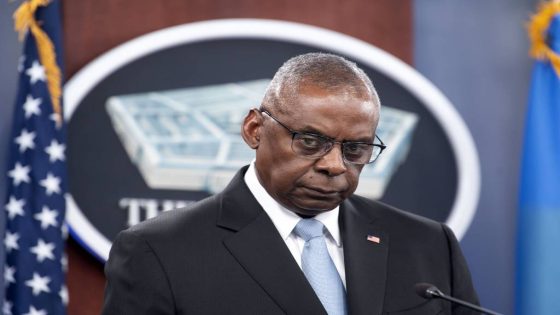SINGAPORE â U.S. Secretary of Defense Lloyd Austin gave a legacy speech at the Shangri-La Dialogue, Asiaâs premier security conference, defending the administrationâs approach to the region in a world consumed by war in Europe and the Middle East.
His message was twofold.
First, the Pentagon under his tenure labeled China its pace setter and the U.S. has indeed kept pace. Austin has visited the Indo-Pacific 10 times as secretary and treated the region as a team sport.
In the last three years, the U.S. has expanded its number of security partners, deepened existing agreements and encouraged them to work more closely together. The leaders of Japan, India, South Korea and the Philippines have all visited Washington for defense-heavy summits. And Austin has visited Shangri-La every year in his tenure, except for a break in 2021 due to the coronavirus pandemic.
Second, Austin argued these teams here to stay. The buzzphrase in his speech was âa new convergence,â or that thereâs a closer set of partners in the region for Washington because they have a closer set of interests. These small groups working together in the region, Austin argued, are replacing the old âhub and spokeâ model in which the U.S. stood at the center of a surrounding set of partners.
His argument is in part an effort reassure countries in the region concerned that the structure is brittle, and could crack if former President Donald Trump returned to the White House.
âThe progress that weâve made together is going to last, not just for the next year, but for the next decade and beyond,â Austin said.
Itâs also a message to Beijing, whose government chafes at the perception that other countries in the region are teaming up to contain it.
Austin cast himself as a figure of stability in contrast to the top Chinese official in attendance. Adm. Dong Jun is Chinaâs third minister of national defense in three years, and a separate minister refused to meet with Austin during the conference last year. The choice reflected poorly on Beijing in a region concerned with peace, especially in the two superpowerâs relationship.
Austin and Dong met on the sidelines of the conference â the first time the two countriesâ top defense officials spoke in person in almost 18 months.
The U.S. and China both give speeches each year at the conference and paint the other as the cause of instability. Austin did so by referencing Chinaâs aggression in the South China Sea and its recent exercises around Taiwan, an island Beijing considers a rogue breakaway province. China launched what it called a set of âpunishmentâ drills after an inauguration speech by Taiwanâs new president, seen as more pro-independence than his predecessor by many in Beijing.
Austin reiterated the value of âthe peaceful resolution of disputes through dialogue â and not coercion or conflict â and certainly not through so-called punishment.â
The speech notwithstanding, Austin entered this yearâs conference facing crises around the world.
Ukraine is defending a fresh Russian advance on Kharkiv, which sits close to the border and where Ukrainian forces made their most stunning advances of the war in 2022.
And Israeli officials continue to say the war in Gaza may continue for at least another six months, testing the limits of Americaâs ability to respond to such a protracted crisis and also Washingtonâs patience in a war where the U.S. has said too many civilians are dying.
Austin referenced both conflicts in his speech but described them as secondary to the Pentagonâs focus on the Indo-Pacific. Given the election later this year, this could be his last visit to the conference as secretary. If thatâs the case, said senior defense officials briefing reporters before the trip, he would leave the region stronger than it was when he started.
âAll of these relationships are at a high watermark,â the official said, âand his leadership fingerprint is all over those.â
Noah Robertson is the Pentagon reporter at Defense News. He previously covered national security for the Christian Science Monitor. He holds a bachelorâs degree in English and government from the College of William & Mary in his hometown of Williamsburg, Virginia.
Source Agencies


